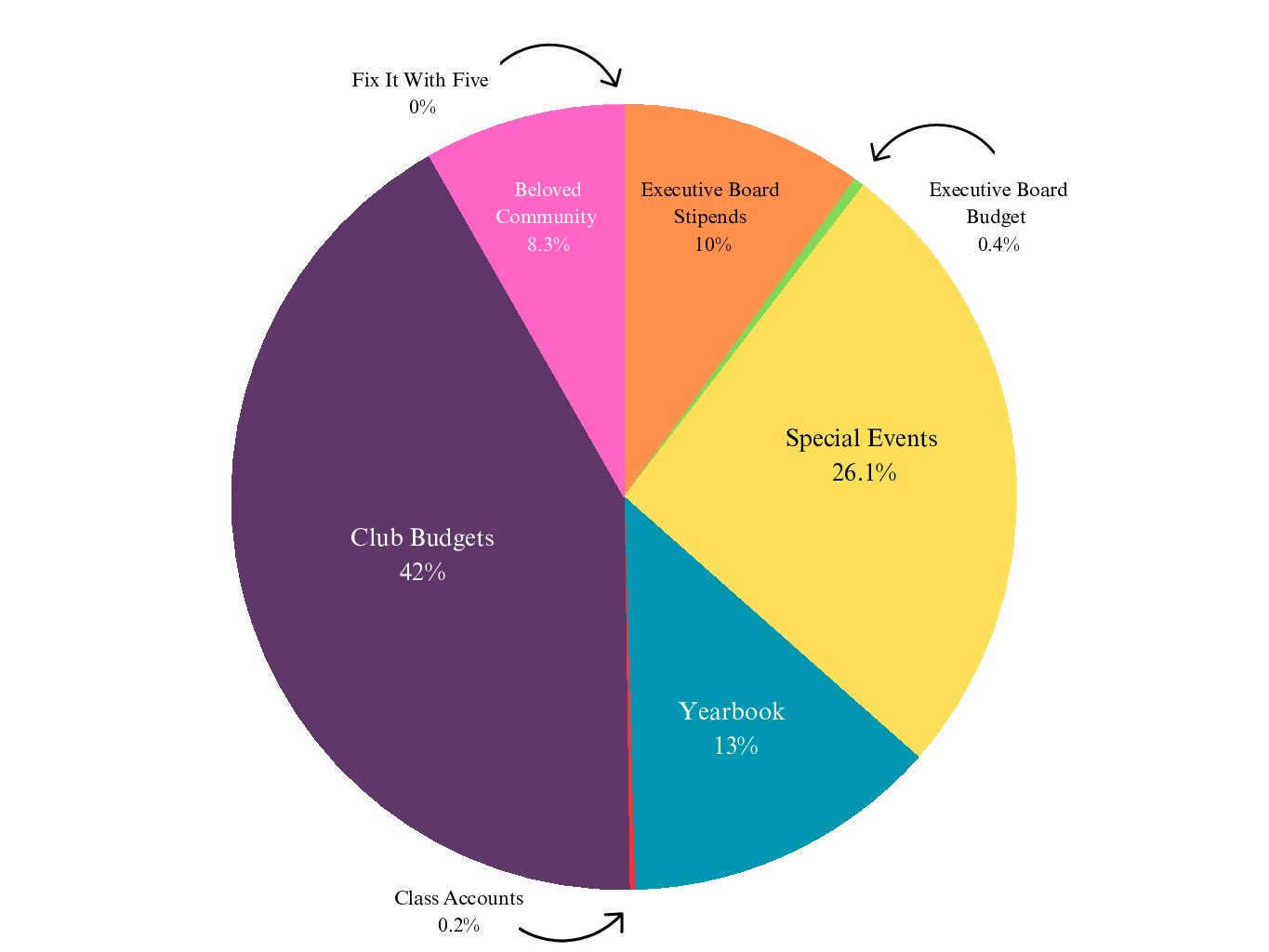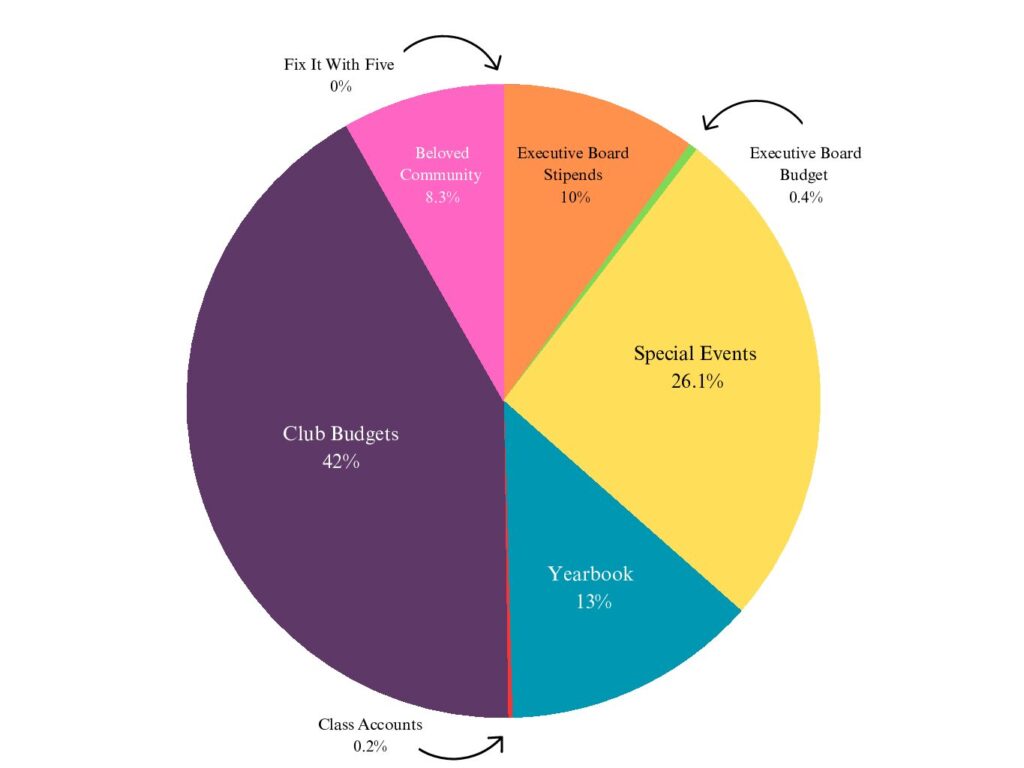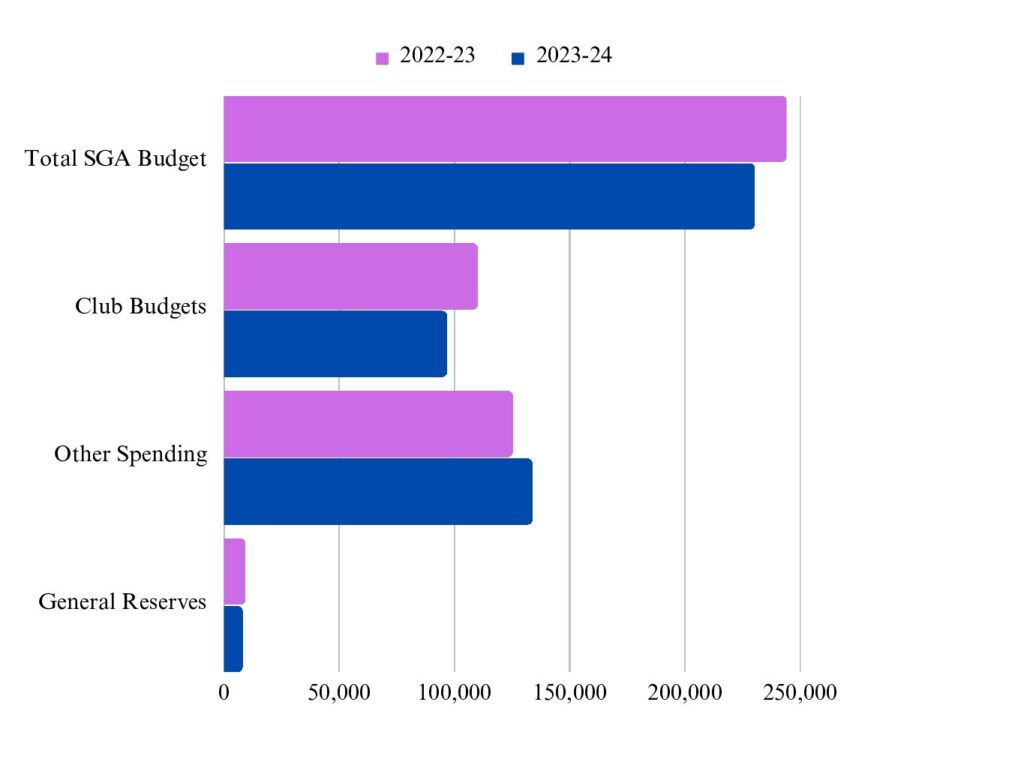
Cassie Lathrope/clathrope@mail.smcvt.edu/Arts & Culture Editor
Each year, the St. Michael’s College Student Government Association (SGA) is given the task of distributing the budget provided to them by the finance department. With many clubs and events dependent on funding, the SGA is responsible for allocating the money fairly.
The SGA’s yearly budget is decided through “a collaborative effort to make sure that we’ve got an SGA budget that both matches their needs and matches the overall college needs,” said Robert Robinson, vice president of finance and administration.
According to Kerri Leach, director of student activities and advisor of the SGA, the “self-governed” group of students is responsible for deciding how the money will be divided.
In the spring of 2023, former SGA President KC Onuoha proposed the decision to cut Fix It With Five, which was then voted on and passed by the Senate, said Dakota Thomas ‘24, SGA president.
In 2009, Fix It With Five was started when the student population was 2,000 students. At the start, $5 was taken from the student activities fee that students are charged on their tuition bill. This $5 from each student would sum to the $10,000 grant.
Leach stated that, an application would be sent out to the surrounding community. The Vice President of the SGA would then be responsible for choosing three finalists who would present their pitch to the entire SGA senate, where the recipient of the money was then voted on.
Cutting Fix It With Five left the SGA with more money for other clubs, but a decrease in community service and outreach beyond St. Michael’s College.

The budget, provided by SGA Secretary of Finances Nick Wracker ‘26, states the SGA was given a total of $230,000 for the 2023-24 academic year. Ten percent of this, $23,000, is put aside towards Executive Board stipends.
A further $1,000 is used for the Student Executive Board budget which according to Emily Zimmer, assistant director of student activities, is used to purchase supplies needed for the SGA office.
Another $30,000 is put towards funding the yearbook.
“[The yearbook] is something that I’m trying to work on decreasing because it’s not something that a lot of students do have access to,” Wracker said.
This year’s budget is smaller than 2023-23, which was $243,825. This was also smaller than 2021-22.
On each student’s tuition bill, they are charged a comprehensive fee. For the 2023 fall semester, it was $1,200.
Gregory Davis, executive director of student financial services, said that the comprehensive fee is, “used to support student government as well as other services on campus; counseling services, health services, technology, access for students and things…It’s used towards the students’ support.”
The more students enrolled, the more money is collected through the comprehensive fee. The amount determines the budget the SGA is given, according to Davis.
Because of the decrease in enrollment in the last couple of years, the SGA budget has taken a hit.
Of the $230,000 budget, $96,500 is divided among 31 clubs. Men’s and Women’s Rugby receive the largest amount of funding at $15,000 each per year.
This year, $88,925 has been distributed, which leaves a remainder of $7,575 in the SGA general reserves. The money in the general reserves can be given to clubs that request extra funding for an event, a guest speaker, etc.

Zimmer explained that each spring, the SGA hosts a pitch meeting where clubs may present why they believe they should receive a given amount of funding. Club representatives display their spending log for the year. Often, clubs pitch for the same amount they already had.
Wracker said that following the pitch meeting, the decision then gets turned over to the senate for a vote. “It would really be based on their presentation and how well they can convince everyone that they need that money,” Wracker said.
Special events planning has received $60,000 this year. According to Leach, this budget is used to put on events such as P-day and Friday Knight Dry each year.
Zimmer stated that as a student in 2015, special events received a budget of around $120,000 compared to the $60,000 they have now.
This year, the SGA created a brand-new grant known as The Beloved Community. As stated in the SGA Public Constitution, the aim of these funds is to “enhance programs and provide resources that promote cultural, educational, social and student wellness.”
The Beloved Community receives a total of $19,000 to be allocated towards the Center for Diversity, Empowerment and Community.
This year, the budgets for the Diversity Coalition and MLK Society have been cut by over half, “because they would be impacted by The Beloved Community grant,” Wracker said.
Many changes have been made to the SGA budget in just the last year alone.
When Wracker was asked what his main goal this year was as SGA Secretary of Finances he said, “We’ve seen a lot of decreases in the budget within the past couple of years. Making sure that students don’t lose access to that money, and doing whatever I can in my power to make sure that that doesn’t happen.”

